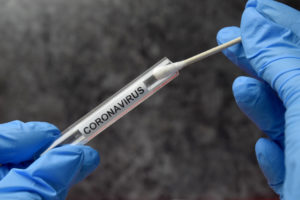A new study has found that 80 percent of COVID-19 patients have a vitamin D deficiency.
A new study shows 80 percent out of 200 COVID-19 patients in a hospital in Spain have a vitamin D deficiency. The new study, which was published in the Endocrine Society’s Journal of Clinical Endocrinology & Metabolism, also reports that vitamin D deficiency was most prevalent amongst men.
According to healthline.com, vitamin D deficiency is very common, and it is estimated that about 1 billion people worldwide have low levels of the vitamin in their blood. Science Daily reports that vitamin D is a “hormone the kidneys produce that controls blood calcium concentration and impacts the immune system.” The website adds that vitamin D deficiency has been connected to a wide variety of health issues. Other studies have highlighted the importance of vitamin D in terms of helping the immune system by protecting it from infections.
“One approach is to identify and treat vitamin D deficiency, especially in high-risk individuals such as the elderly, patients with comorbidities, and nursing home residents, who are the main target population for the COVID-19,” said study co-author José L. Hernández, Ph.D., of the University of Cantabria in Santander, Spain. “Vitamin D treatment should be recommended in COVID-19 patients with low levels of vitamin D circulating in the blood since this approach might have beneficial effects in both the musculoskeletal and the immune system.”
Researchers found that 80 percent of 216 COVID-19 patients at the Hospital Universitario Marqués de Valdecilla. Men reportedly had lower vitamin D levels than women.
Those who worked on the study are as follows: Daniel Nan, José M. Olmos, Javier Crespo, and Víctor M. Martínez-Taboada of the University of Cantabria; Marta Fernandez-Ayala, Mayte García-Unzueta, Miguel A. Hernández-Hernández, Marcos López-Hoyos, Manuel Gutiérrez-Cuadra, and Juan J. Ruiz-Cubillán of the Hospital Marqués de Valdecilla-IDIVAL in Santander, Spain; Pedro Muñoz Cacho of the Servicio Cántabro de Salud in Santander, Spain; and the manscript was funded from Instituto de Salud Carlos III.




